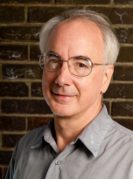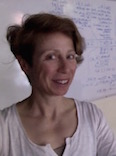TEASE-LP: Workshop on Trends, Extensions, Applications and Semantics of Logic Programming
Logic programming is a framework for expressing programs, propositions and relations as Horn clause theories, and for automatic inference in these theories. Horn clause theories are famous for its well-understood declarative semantics, in which models of logic programs are given inductively or coinductively. At the same time, Horn clauses give rise to efficient inference procedures, usually involving resolution. Logic programming found applications in type inference, verification, and AI. While logic programming was originally conceived for describing simple propositional facts, it was extended to account for much more complex theories. This includes first-order theories, higher-order theories, inductive and coinductive data, and stochastic/probabilistic theories.
The aim of this workshop is to bring together researchers that work on extensions of logic programming and inference methods, and to foster an exchange of methods and applications that have emerged in different communities.
TEASE-LP Online!
In light of COVID-19, we are organise TEASE-LP as a virtual workshop and online-only event. To achieve broad participation, we use three different mediums:
- Discussion Forum
- Pre-recorded lightning talks
- Live sessions on 28 and 29 May with invited and contributed live talks
Further details, including information about the meeting on Zoom, can be found here.
Invited Speakers
Unfortunately, Luke Ong cannot join us as keynote speaker, as initially planned.
Topics
The central idea of this workshop is to discuss the theory of logic programming and associated topics that have as well the goal to automatically infer knowledge and proofs. Our intent is to bring together researchers that work on the numerous topics that contribute to automatic inference and foster an exchange that may lead to an advance in the theory of logic programming. The topics that we have in mind are
- Proof theory (e.g. focalised and uniform proofs)
- Logic programming beyond the classical Horn clause theories (e.g. coinduction, higher-order Horn clauses, probabilities, categorical logic, inductive LP)
- Extensions of logic programming (e.g. DataLog, description logic, relational programming)
- Advanced implementations (e.g. λProlog, ELPI, miniKanren)
- Type theory (e.g. polarised λ-calculus, proofs-as-programs, types for logic programming)
- Semantics (e.g. classical, categorical, algebraic, coalgebraic)
- Applications of logic programming
Programme Committee
- Henning Basold (chair), LIACS, Leiden University, NLD
- Nikolaj Bjørner, Microsoft Research, USA
- William Byrd, University of Alabama at Birmingham, USA
- Gopal Gupta, The University of Texas at Dallas, USA
- Ekaterina Komendantskaya (chair), Heriot-Watt University, GBR
- James Lipton, Wesleyan University, USA
- Dale Miller, INRIA and LIX/Ecole Polytechnique, FRA
- Gopalan Nadathur, University of Minnesota, USA
- Frank Pfenning, Carnegie Mellon University, USA
- Hiroshi Unno, University of Tsukuba, JPN
- Noam Zeilberger, University of Birmingham, GBR

